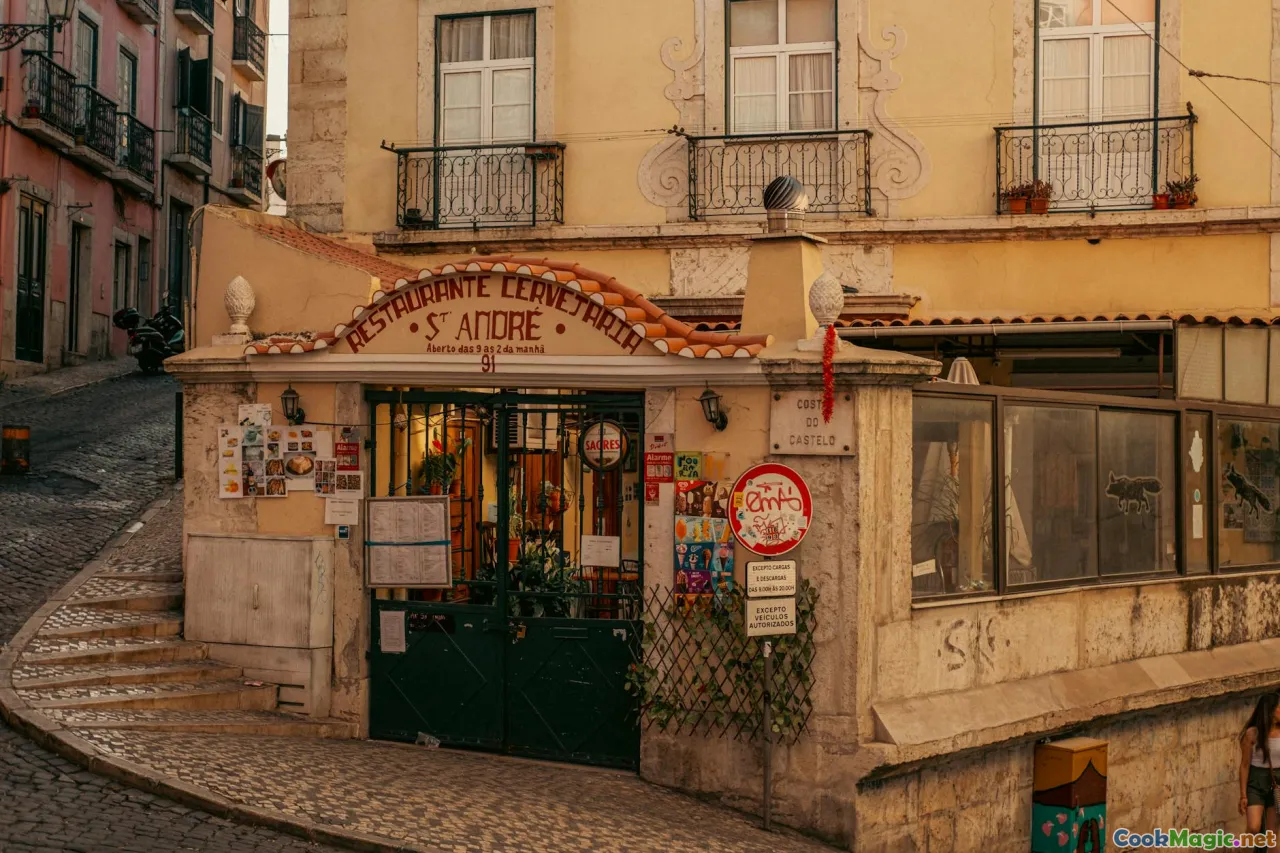Lisbon Street Food Tracing Roots in Local Markets
8 min read Discover how Lisbon's vibrant street food scene is deeply rooted in its local markets, blending history, culture, and flavors into an unforgettable experience. April 21, 2025 17:00
Lisbon Street Food Tracing Roots in Local Markets
Imagine wandering through narrow cobbled streets, where the intoxicating aroma of grilled sardines, freshly baked pastries, and simmering stews beckon from every corner. Lisbon, a city renowned for its picturesque vistas and historic charm, also boasts a vibrant street food culture that is as rich and diverse as its history. But beyond the tantalizing flavors lies a story deeply intertwined with the city’s bustling markets—spaces that have served as the heartbeat of Lisbon’s culinary evolution for centuries.
An Introduction: The Soul of Lisbon's Streets
Lisbon’s street food scene is not merely a collection of quick bites; it’s a living, breathing reflection of the city’s identity. From the lively Mercado da Ribeira to the historic Feira da Ladra, these markets are more than shopping destinations—they are cultural hubs where tradition, community, and cuisine converge.
Walking through these markets, you can taste the echoes of centuries past—Arab influences, maritime trade, rural traditions—all infused into the food that vendors passionately prepare each day. The street foods here are a mosaic of Portugal’s diverse history, crafted with local ingredients and age-old techniques.
The Historical Roots: Markets as Cultural Crossroads
The Evolution of Lisbon’s Markets
Lisbon’s markets date back to the Moorish period when traders brought spices, fruits, and textiles from North Africa and the Middle East. Over centuries, these spaces evolved from simple open-air markets into sprawling complexes, each with its own unique character.
Mercado da Ribeira: A Modern Icon with Deep Roots
Today, Mercado da Ribeira, also known as Time Out Market Lisbon, stands as a symbol of this heritage. Originally established in the 19th century, it has been transformed into a culinary melting pot where traditional recipes meet contemporary gastronomy. This market exemplifies how Lisbon’s street food roots are preserved and reimagined.
Local Markets as Social Spaces
Historically, markets in Lisbon served as communal gathering points. Vendors, often family-run, passed down recipes through generations, ensuring the authenticity of flavors. These interactions fostered a sense of belonging that persists today—a testament to the city’s deep-rooted food culture.
The Flavors of Lisbon’s Street Food
Sardinhas Assadas (Grilled Sardines)
No street food experience in Lisbon is complete without the smell of freshly grilled sardines. Juicy, smoky, and bursting with flavor, these small fish are a staple, often served with simple accompaniments like roasted peppers and crusty bread. Vendors at Feira da Ladra and along the waterfront prepare them with techniques passed down from fishermen’s families.
Bifanas (Pork Sandwiches)
Bifanas are a testament to Portugal’s love for hearty, flavorful sandwiches. Thin slices of marinated pork, seasoned with garlic, paprika, and white wine, are nestled into a soft roll, topped with mustard or piri-piri sauce. These are sold from stalls lining the streets, offering quick comfort food that’s both affordable and satisfying.
Pastéis de Nata (Custard Tarts)
While not strictly a street food, the iconic pastel de nata finds its humble origins in local bakeries and markets. Crispy, flaky pastry cradles a rich, creamy custard, often dusted with cinnamon. Freshly baked, these treats evoke childhood memories and are an essential part of Lisbon’s culinary identity.
Petiscos (Small Plates)
Inspired by Spanish tapas, petiscos include a variety of small, flavorful dishes like octopus salad, marinated olives, and chouriço (smoked sausage). Vendors serve these with bread and local wines, creating a convivial atmosphere that celebrates community and shared flavors.
Personal Encounters and Local Stories
Walking through a market stall in Alfama, I remember the vendor—an elderly woman with a radiant smile—handing me a sample of her homemade chorizo. Her stories of growing up in Lisbon, learning recipes from her grandmother, added a layer of authenticity that no cookbook could replicate. Such moments highlight how markets are custodians of culinary heritage.
The Role of Food in Lisbon’s Social Fabric
Food vendors are more than sellers; they are storytellers and custodians of tradition. Their dishes carry the history of generations—fishermen, farmers, artisans—all contributing to Lisbon’s vibrant tapestry. The communal tables, shared plates, and lively conversations create an atmosphere where food becomes a bridge connecting past and present.
The Future: Preserving Roots While Embracing Innovation
While modernization and tourism have transformed many aspects of Lisbon’s markets, efforts are underway to preserve authentic street food traditions. Local chefs and artisans are blending age-old techniques with contemporary twists, ensuring that the city’s culinary roots remain vibrant.
Special food festivals, culinary tours, and market refurbishments aim to celebrate and sustain this heritage. Visitors are encouraged not just to indulge but to engage—asking vendors about their recipes, learning about local ingredients, and participating in the ongoing story of Lisbon’s street food.
Conclusion: A Feast for the Senses and the Soul
Lisbon’s street food, deeply rooted in its local markets, is an immersive experience—an edible journey through history, culture, and community. Each bite tells a story, each aroma evokes a memory, and each market stall is a chapter in Lisbon’s ongoing culinary narrative.
So next time you wander through Lisbon’s lively streets, pause and savor the vibrant flavors born from centuries of tradition. Let the markets be your guide to understanding the soul of this enchanting city—one delicious bite at a time.
Embark on this flavorful journey and discover how Lisbon’s markets continue to nurture its street food roots, blending history, community, and irresistible taste in every corner.









